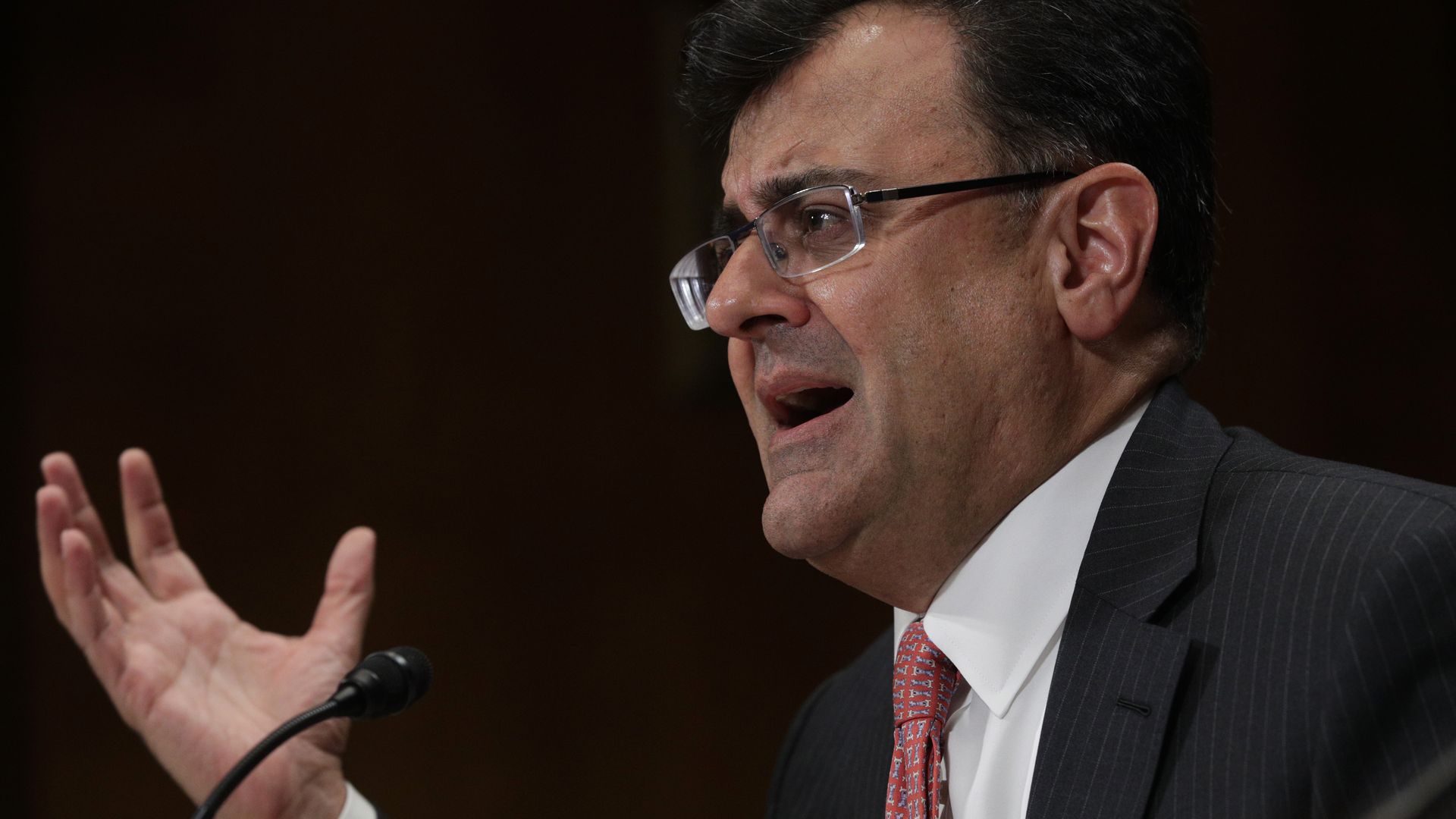Google in the Senate hot seat
Add Axios as your preferred source to
see more of our stories on Google.

Google's Karan Bhatia at Senate Judiciary hearing. Photo: Alex Wong/Getty Images
Google faced stern words from both sides of the aisle at a Senate Judiciary subcommittee hearing about its power over online content Tuesday afternoon.
Why it matters: As new privacy regulations and antitrust initiatives aimed at Big Tech build momentum, everyone on Capitol Hill seems to have their own set of gripes with the companies, leaving them little political safe harbor.
- Republicans lashed Google for "widespread implicit bias against conservative values," in the words of Tennessee Sen. Marsha Blackburn, in both search results and YouTube policies.
- Democrats dismissed the bias claim but criticized the company for failing to limit the spread of violent, extremist and deceptive content on Google-owned YouTube.
Senators from both parties pushed Google to allow an independent third party to audit its content moderation and search rankings, similar to one Facebook launched last year.
- Both Sen. Ted Cruz (R-Texas), chairman of the subcommittee holding the hearing, and Sen. Richard Blumenthal (D-Conn.), pressed Google's representative to promise to allow an audit with full access to its data.
- But Karan Bhatia, a former Bush Administration official and GE exec who is now Google's vice president of global government affairs and public policy, was non-committal.
- Both Blumenthal and Sen. Josh Hawley (R-Missouri) queried Bhatia about investor Peter Thiel's claim that Google has betrayed U.S. interests in China, a charge the company has repeatedly denied.
The big picture: Although the tech workforce leans politically left, there is no solid evidence of political bias in tech platforms' content policies. A panel of 5 witnesses at the hearing offered a range of criticisms of Google but no new hard evidence.
Dennis Prager, founder of Prager U, a popular YouTube channel, repeated his complaint that the video platform has discriminated against him for his conservative views.
- Bhatia said none of Prager's videos had been taken down but a "small percentage" had been labeled as "mature" content and would not play for users who have turned that filter on.
- He also showed a chart showing that Prager's volume of "mature" flags is relatively modest compared to many other YouTube content providers.
Jason Kint, CEO of the Digital Content Next publishing industry trade group, called on lawmakers to "end Google's stranglehold on digital media."
Sociologist Francesca Tripodi said her research shows that how users phrase search queries shapes the political slant of the results they receive.
Psychologist Robert Epstein reported his research — cited last year at the House Judiciary questioning of Google CEO Sundar Pichai — claiming that Google search results and Facebook's get-out-the-vote campaigns have swayed millions of votes toward Democrats in recent elections. Google has disputed the methods and validity of the research.
Andy Parker, a gun control advocate whose journalist daughter was killed on live TV, accused Google of "turning a blind eye to targeted harassment."
- After conspiracy theorists began painting the incident as a hoax on YouTube, he asked Google to take down the videos, but the company told him to review them himself and flag them for removal.
Our thought bubble: One thing seems to infuriate Google critics of all political stripes — the company's tendency to respond slowly or not at all to inquiries, complaints and outrage.
